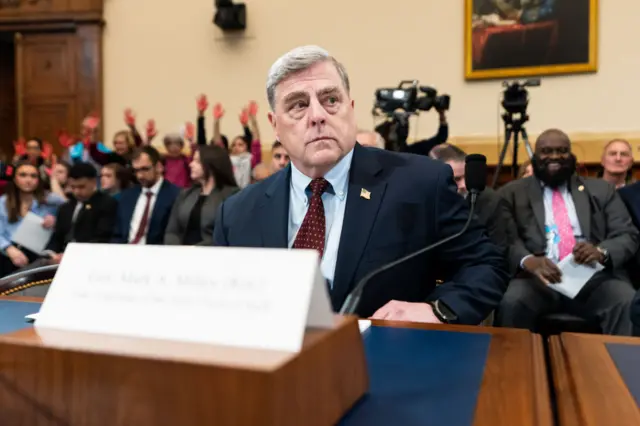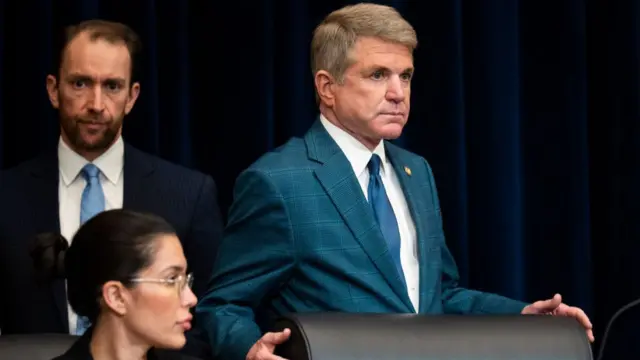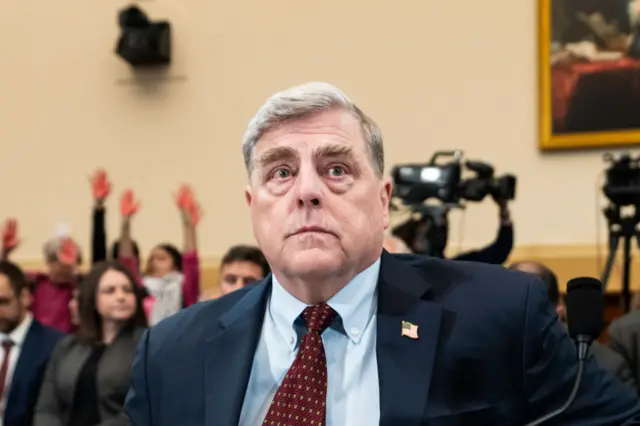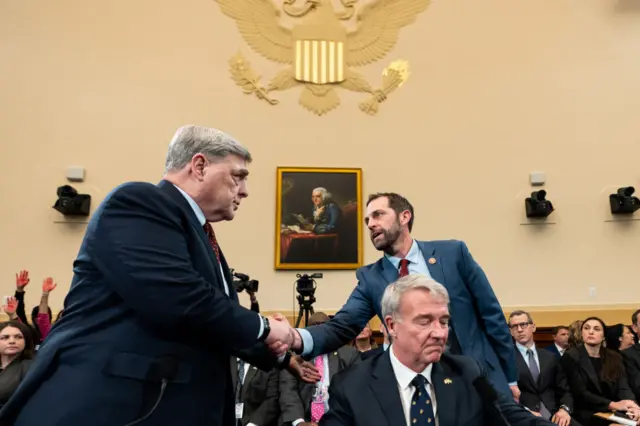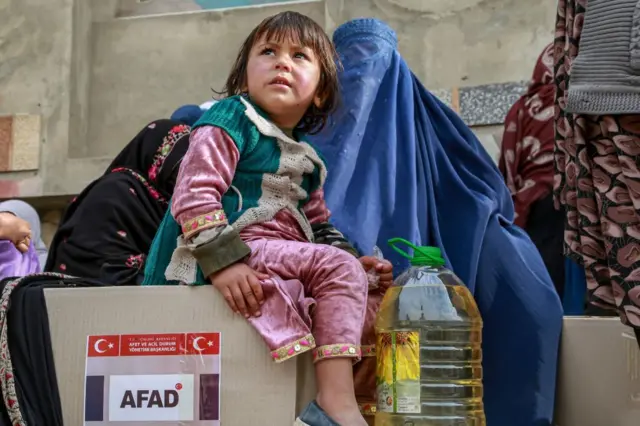Generals grilled about failed drone strikepublished at 18:47 GMT 19 March 2024
Scott Perry, a Republican Congressman from Pennsylvania, has been pushing both Milley and McKenzie on specifics about a failed drone strike that killed 10 innocent people in Kabul just days before the US pulled out of Afghanistan.
Perry asks whether they were concerned with the intelligence they were getting that was leading them to the targets.
Mckenzie says they had descriptions of the targets. But Perry keeps pushing about the chain of command and how much intelligence they had before the attack.
He then talks about how it took the Pentagon five days to admit it had made a mistake.
He asks Milley when he knew and whom he told.
Milley says that he knew four or five days after the attack, and that if Perry is asking him whether he told President Biden, "I did not".
Milley then rebukes Perry when he says the administration was lying to the American people for five days, saying that lying implies they were being purposefully deceitful.


